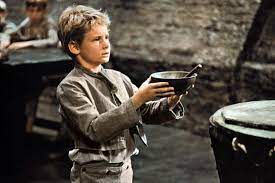More Please...
6/21/20232 min read


"Thank you, we have enough" are words a government agency has never spoken. You have yet to hear of a firehouse that is the right size, enough in the budget to cover next year's expenses, or that salaries are in line to be competitive. There is a never-ending need for more, a rapacious appetite that spreads like cancer, a contagious disease that infects everyone it encounters. After all, why should we be left wanting? If they have more, we have less—the modern measurement standard.
When there is a shortfall in a budget, it is never because of overspending. It's always due to needing more, to begin with. We need more electric charging stations, not because of an apparent deficiency. But because other cities have them, we must have every possible amenity, lest we be judged.
The more we have, the more we need. The more people who move here, the more police we need. The more schools we need. We need wider roads and more water. The more police and schools we need, the more revenue we need to pay for them. We get more income by attracting more people. We attract more people by having more amenities, which cost more. A vicious cycle of needs and wants with no end. A perpetual vortex of an unsatisfying demand that beholds everyone to offer sacrifices to its alter.
We are living in an age of entitlement. We all deserve more and, therefore, should have it without question. My child deserves a better grade, I deserve a raise, we deserve free internet in public places, we deserve to have loans forgiven, and I deserve to have the zoning changed on my land to accommodate greater density and higher profit.
The "more" mentality does not end with the government. Consultants contracting with municipalities and agencies will keep job security going for as long as possible. Sometimes even decades. Each study leads to another in perpetuity. More is the conduit for more. It is the most effective campaign slogan of all. "More for everyone!" The irresistible urge to elevate ourselves to a higher status. When our cups become full, we get larger cups. When we maximize our debt, we simply raise the ceiling. The problem is the deterioration of our self-governance standard. We have familiarized ourselves with falsehoods. We are accustomed to stretching the truth and accepting weak analysis to support spending habits. We entrust lesser arguments to convince us that all this spending is for the greater good.
When Oliver Twist asks for more gruel in the workhouse, the headmaster hits him on the head with a ladle. What if we were met with such a response? What if a department encountered that degree of resistance? A metaphoric hit on the head when they ask for more.
Accountability is a foreign concept today; it is rejected as the plague of our time. No generation wants to pay the debt from the previous. But we have no headmaster to keep us in check. We have no one in authority willing to call out this wonton waste. Everyone seems to just want their slice of the pie.
The alarm bells are sounding, and the red lights are flashing. We should be obligated to live within our means, stay within a budget and conserve our resources for future generations. We need something to hit us over the head, a reminder that responsibility still exists.
